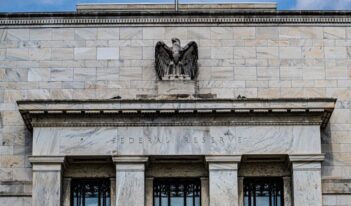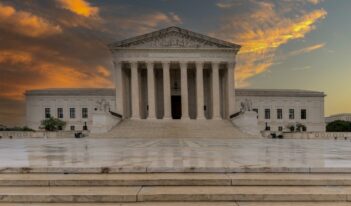
Recent court decision may threaten the future existence of the U.S. Consumer Financial Protection Bureau.
The Consumer Financial Protection Bureau (CFPB) is one of the newest federal agencies. It may also be one of the most endangered.
In a recent ruling, a three-judge decision by a federal appeals court held that the CFPB’s funding mechanism is unconstitutional. On its face, the court’s decision is relatively narrow, only striking down a single agency rule regulating payday lenders.
But the implications of the court’s decision stretch far beyond this one CFPB rule, according to legal experts. If upheld on appeal, the decision could reshape the federal government’s ability to regulate financial markets and protect consumers from fraudulent activity.
Money lies at the heart of the case known as Community Financial Services v. CFPB. When the U.S. Congress created the CFPB in 2010, it hoped to insulate its funding from political interference. Instead of subjecting the CFPB to the annual appropriations process—in which agency funding can vary depending on which party holds power—Congress funded the new agency through the Federal Reserve.
Because the Federal Reserve is self-funded, the law ensured that the CFPB has a consistent source of revenue. Proponents of this funding structure view it as continuing a tradition of keeping financial regulatory agencies immunized from the normal appropriations process, ensuring they can act separate from political considerations.
But a three-judge panel of the U.S. Court of Appeals for the Fifth Circuit has now disagreed. In its ruling, the court cited the CFPB’s “unique, double-insulated funding mechanism” in holding the agency’s structure to be unconstitutional. The court stated that, because the CFPB’s funding flows through another independently funded agency, it violates the U.S. Constitution’s Appropriations Clause, which requires all federal spending to be appropriated by Congress.
Because the agency “lacked the wherewithal” to implement the challenged payday-lending rule “via constitutionally appropriated funds,” the court said that the rule is invalid.
According to legal experts, the court’s decision renders rules that the CFPB has issued essentially unenforceable in the Fifth Circuit, which includes Texas, Louisiana, and Mississippi.
Attorneys Alan S. Kaplinsky, Michael Gordon, and John L. Culhane, Jr. of Ballard Spahr’s Consumer Finance Monitor caution that courts in other jurisdictions may similarly view the Fifth Circuit’s decision as persuasive and invalidate CFPB rules.
Given that the 2010 statute that created the CFPB consolidated authority for implementing and enforcing consumer protection laws in the new agency, the Fifth Circuit’s decision will generate “chaos” in financial markets, according to Adam Levitin of Georgetown Law. Levitin argues that markets as diverse as housing and debt collection will face uncertainty as courts potentially strike down CFPB regulations governing financial institutions’ day-to-day operations.
Moreover, the recent Fifth Circuit decision calls into question the constitutionality of other financial regulatory agencies funded through similar mechanisms to the CFPB, according to Kaplinsky, Gordon, and Culhane.
The Fifth Circuit suggested it viewed the CFPB’s case as unique, noting that the CFPB’s “perpetual self-directed, double-insulated funding structure goes a significant step further than that enjoyed by the other agencies.” But the court sidestepped the question of exactly when an agency’s funding would otherwise be constitutional, creating the possibility that other agencies such as the Federal Reserve and the Office of the Comptroller of the Currency will “face Appropriations Clause challenges to actions they take,” note Kaplinsky, Gordon, and Culhane.
Whether these scenarios come to pass will ultimately depends on future court rulings, Kaplinsky, Gordon, and Culhane state. They expect the CFPB to appeal the Fifth Circuit’s opinion, and they predict the issue will end up in front of the U.S. Supreme Court. Other circuit courts have previously upheld the CFPB’s funding mechanism, creating what is known as a circuit split—one that only the Supreme Court can resolve.
How the Supreme Court would rule remains to be seen, although a previous decision may provide insight. In a 2018 case known as Seila Law v. CFPB, the Court overturned another component of the CFPB’s independent structure, holding that a legislative provision that restricted the President from removing the CFPB’s director without proper cause was unconstitutional.
Although the Court did not rule on the funding issue in that case, Chief Justice John Roberts stated in his majority opinion that the “financial freedom” of the CFPB “makes it even more likely that the agency will ‘slip from the Executive’s control, and thus from that of the people.’”
One key difference separates the Fifth Circuit’s funding case from Seila Law. In Seila Law, the Supreme Court declined to eliminate the CFPB, simply allowing the President to remove the CFPB’s director. Chief Justice Roberts justified this decision in part by writing that eliminating the CFPB would “trigger a major regulatory disruption and would leave appreciable damage to Congress’s work in the consumer-finance arena.”
No such neat solution exists in the current case, however, according to Evan Weinberger of Bloomberg Law. Overruling the CFPB’s funding mechanism would leave the agency unable to continue its operations and necessitate new congressional legislation to fund the CFPB, Weinberger writes, sparking a “political fight” over the future of the agency.
Weinberger notes that it could be over a year before the Supreme Court rules on any appeal. In the meantime, legal experts expect a new source of uncertainty to dominate the financial regulatory landscape.



